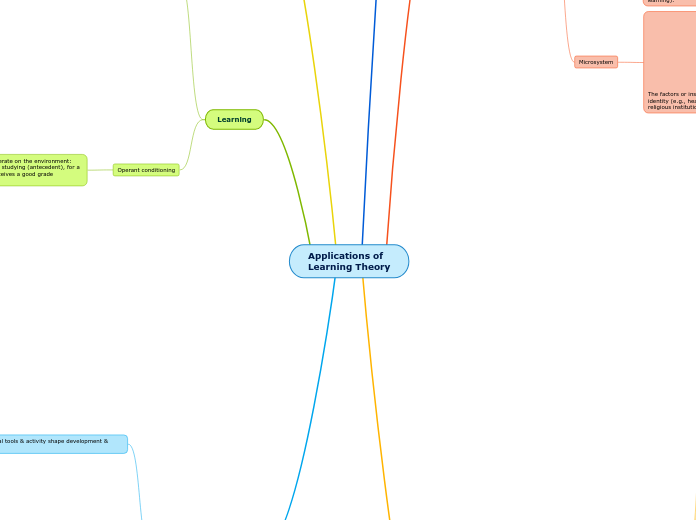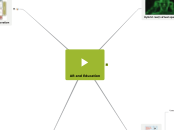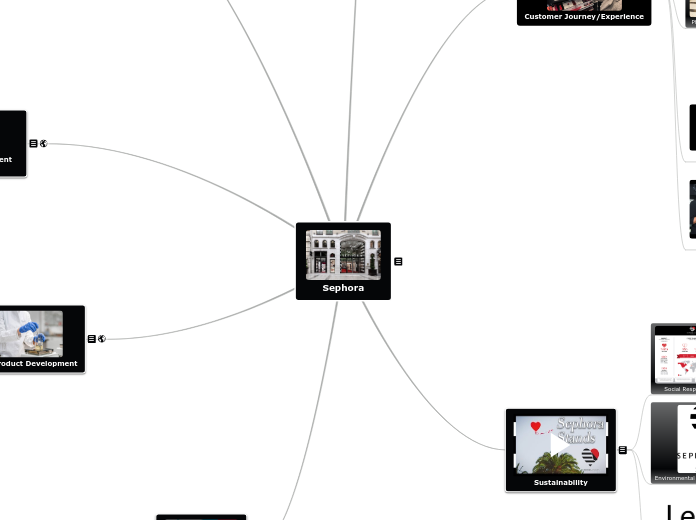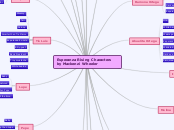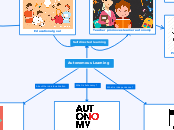Applications of
Learning Theory
Social Constructivism
Zone of Proximal Development
When students work collaboratively or in support with the teacher, they can accomplish more than they could individually. Using peer-editing and reciprocal teaching helps students to engage more fully in their learning.
More knowledgeable other: Using instructional and scaffolded support to aid in student learning.
Using guided reading to help students practice reading comprehension strategies
Interaction, cultural tools & activity shape development & learning
Specific knoweldge
Completing specific Chemistry experiments in higher grades.
General knowledge
How to read a book
Learning
Operant conditioning
Behaviours are learned as we operate on the environment: Antecedents & consequences: By studying (antecedent), for a test (behaviour), the student receives a good grade (consequence).
Application: A student studies for their test & receives a good grade.
Writing an exam (behaviour)
Student studies (antecedent)
Classical conditioning
A neural stimulus is paired with a stimulus that evokes an emotional or physiological response
Vygotsky:
Sociocultural Theory
Co-creation of knowledge & shared activities.
Application: Co-creating success criteria for
an upcoming assignment between
the teacher & the students.
Cognitive Views of Learning
Types of knowledge
Self-Regulatory Knowledge (How can students manage their behaviour and feelings?)
Application: A student knows when it is appropriate to share information and when they should listen quietly.
Procedural knowledge (What are students able to do?)
Application: A student can kick a soccer ball.
Declarative knowledge (What do students know)
Application: A student knows the steps of kicking a soccer ball.
Information Processing Model
Retaining information
Chunking: Grouping individual bits of information. Application: The teacher groups similar problem types together in the same instructional cycle (the teacher teaches a unit exclusively on patterning).
Elaborative rehearsal: Connecting information to remember with something you already know. Making text-to-text/text-to-self connections
Maintenance rehearsal: Repeating information or refreshing information in visuospatial sketchpad. In the minds on phase of a 3-part math lesson, the teacher refreshes the student's knowledge.
Phonological Loop: Speech & sound-related system for rehearsing words & sounds in short-term memory to transfer into long-term memory. Students engage in a think-aloud process during Math class, especially when completing complex tasks.
Central Executive: The planning and resource allocation of resources. For students who struggle with this area, provide students with a list of tasks to complete at a time.
Working memory: How many instructions can a student keep in their brain at one time? Chunking and blocking instructions into different pieces to focus energy.
Holds that students can only do one cognitively demanding activity at a time. Using learning goals to focus student attention.
Brofenbrenner:
Bio-ecological model
Microsystem
The factors or institutions that directly impact an individual's identity (e.g., healthcare services, school, peers, family, religious institutions).
Mesosystem
An in-school team meeting conference to support a child's well-being in the school (interaction between adults to support learning).
Exosystem
The media definitions of what is socially acceptable.
Macrosystem
Culture's definition of what is acceptable behaviour. Application: A group of boys to reinforce what it means to be "men" play rough and tumble games at recess, while the girls prefer to sit and talk. In this context, the students reinforce the stereotypes and the social condition of manhood and womanhood.
Piaget:
Theory of
Cognitive Development
Stages of development in J/I
Formal Operational: Students begin to develop an
understanding of hypothetical situations & think through complex ideas and begin to think from a variety of perspectives (How might a teenager think of climate change? What would an older person think of climate change?). Students can think about these situations differently.
Concrete Operational: Application: Students struggle to understand hypothetical situations & developing empathy, "How would you feel if..."
Systems of actions that help us organize
our thinking. Application: Sequence activities in a step-by-step order to help students focus on how to complete
complex processes (anchor charts for complicated mathematical processes).
